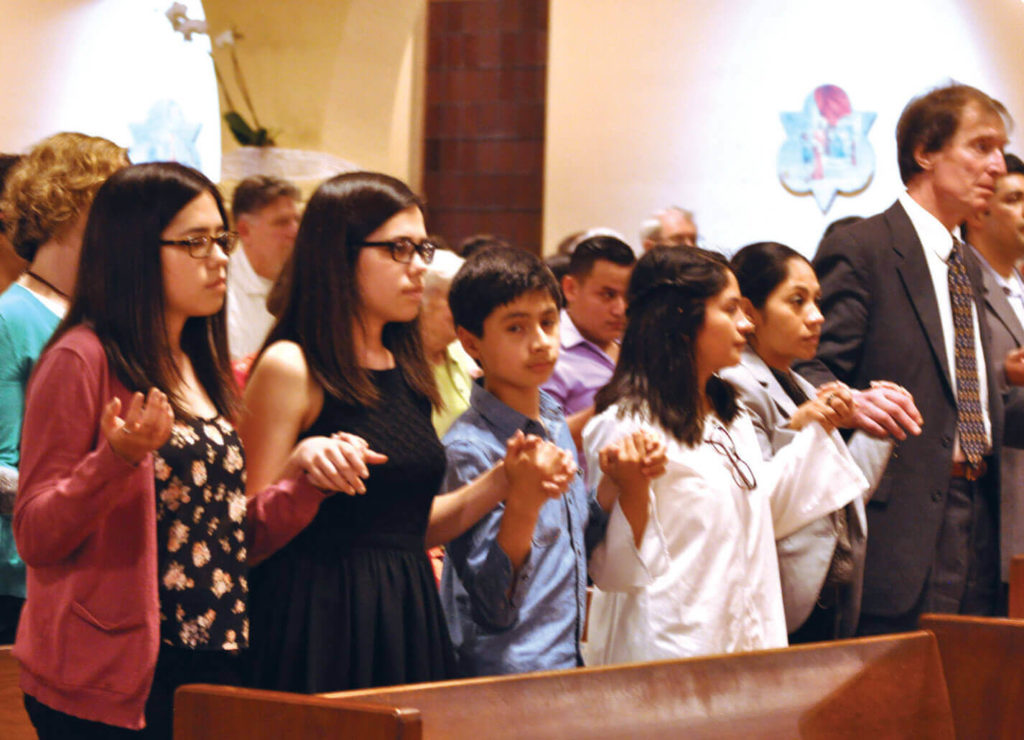
The crowd in last Sunday’s gospel ate their fill of barley loaves. They decided on the basis of this sign that Jesus must be a prophet, but they have literally and figuratively missed the boat. The people who have eaten their fill wake up the next morning to find neither Jesus, whom they wanted to make king, nor his disciples among them.
The people set out in boats to find Jesus. When they find him, they address him as rabbi, according him a teacher’s authority. But the question they ask him is superficial, “When did you come here?” They seem to object to his being outside their command and control.
In answering the crowd, Jesus challenges the superficiality of their religious search. He suggests that they seek him only because they ate their fill. They do not recognize the One who provides them the food, nor do they take up the work this One gives them to do.
Jesus the teacher uses their experience to tease them beyond the tangible. “Do not work for food that perishes,” he urges them, “but for the food that endures for eternal life, which the Son of Man, will give you.”
The crowd bites. In John’s gospel Jesus often creates misunderstanding in conversations to draw people deeper. The crowd nibbles on his bait. They ask “What must we do to perform the works of God?”
Jesus’ answer is direct and easy-to-understand. “The work of God is believing in the one whom God has sent.” Believing in Jesus creates a dividing line among the Jews in the A.D. 90s when John writes.
Ironically, these same people who yesterday ate the abundant food only the messiah could provide this day refuse to believe without a sign. They accepted food from Jesus’ hands but now they ask what work he performs.
Their questions demonstrate that the abundant bread was no sacrament to them, no sign revealing God’s presence among them in Jesus. They ate, but they did not believe.
- What sign makes you most certain you believe God sent Jesus?
- What causes you to lose faith?
The people seek a sign as convincing as the manna, which their wandering ancestors ate during their 40 years in the wilderness. Jesus questions how well the crowd remembers Israel’s traditions. He suggests they have forgotten half the story, namely, that the manna came from God, not Moses, and that they make the same mistake if they do not recognize he comes from heaven. He is the bread of God come down to give life to the world.
Again, the people bite. They want the true bread from heaven that gives life to the world. They address Jesus with respect as they ask, “Sir, give us this bread always!”
In Jesus’ conversation with the crowd, John’s gospel traces a step-by-step invitation to faith. With the crowd asking for the life-giving bread of God, Jesus has them ready to see who he really is. “I am the bread of life,” he announces.
John deliberately claims for Jesus the divine name I am, a name so holy that the people of Israel never pronounce it aloud but say Adonai instead. God reveals the name Yahweh to Moses at the burning bush. The name means I Am Who Causes to Be. Repeatedly in John’s gospel Jesus uses the divine I am to reveal himself.
As if identifying himself as the divine I Am were not a sufficient leap of faith, Jesus tantalizes the crowd with the paradox that whoever comes to him will never be hungry and whoever believes in him will never be thirsty. Jesus first calls the crowd beyond the bread they have eaten to see its source, God the creator of life, and then calls them to put their faith in him, the one whom God has sent.
Like Lady Wisdom in Proverbs 8 and Sirach 24, whose table is the abundant fare of all creation, Jesus identifies himself with bread and life.
To teach who he is, Jesus appeals to two basic needs every human experiences — hunger and thirst.
Only faith in Jesus, the living bread, will satisfy our hunger forever. Those who eat the bread of life take this food inside themselves. In this act they express their wholehearted faith that Jesus comes from God, and they become themselves God’s bread for others.
- What do you make of Jesus’ promise that you will never be hungry or thirsty again?
- Who do you feed in your daily life and work?
- To what do your parish Eucharistic meals call you as a community of believers?
